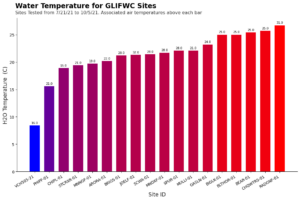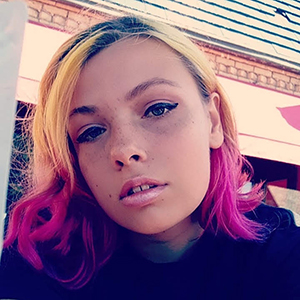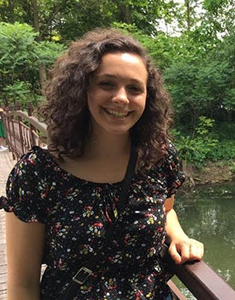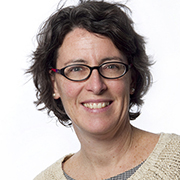Research scholars’ reflections
In summer 2023, 31 undergraduates in the Freshwater@UW Summer Research Opportunities Program fanned out across Wisconsin, connecting with mentors and others within their cohort. They gained valuable research, career-building and, well, life experiences. Then they gathered their thoughts from the previous 10 weeks and put them into a reflections document.
Sea Grant provided support for the program, along with the Freshwater Collaborative of Wisconsin, the University of Wisconsin Water Resources Institute and the University of Wisconsin-Madison Graduate School. The Sea Grant blog will periodically share these student reflections.
This post features Laura Zapata, mentored by Prof. Grace Bulltail of UW-Madison, who analyzed wetlands’ water quality data to better understand impacts on wild rice, particularly under a changing climate.
I’m from Pacoima, a largely low-income Latine neighborhood that happens to be the most polluted area in the area of LA County, California, where I am from. During my senior year of high school, the news that the power plant by my house had been leaking methane for years reaffirmed my decision to pursue a career in the environment. Although harmful to my community, that event opened my eyes to the reality of environmental injustice and the need for people from diverse backgrounds to work on problems relating to the environment to ensure our communities are served equitably.
Now, I’m studying chemical engineering at UCLA where I expect to obtain my bachelor’s in June of 2025. My desire to create solutions to environmental problems has led me to pursue research in a variety of areas. Most recently, I completed a project at the UCLA SEALab on the post-compaction behavior of common soil-based biofilter amendments, as well as a group project where we provided data visualizations for UCLA Sustainability. Through my academic and research experiences, I’ve become interested in water treatment and management, particularly stormwater treatment as well as green infrastructure and environmental remediation.
This interest led me to apply to the Freshwater@UW program where I had the pleasure of conducting an analysis of Great Lakes Indian Fish and Wildlife Commission (GLIFWC) monitored wild rice sites from the lens of water quality.
Wild rice is a grain native to the Great Lakes region and a key part of Ojibwe culture. Unfortunately, it has faced a decline from historic levels due to habitat loss and degradation. Organizations that work to preserve remaining wild rice beds, such as GLIFWC, face the challenge of assessing the effects of various water quality parameters in their areas of work. GLIFWC in particular has water quality data that has yet to be examined for use in wild rice work; the potential of this data from wild rice sites is unfulfilled without analysis.

Image credit: Laura Zapata
I was able to assist by identifying key contaminants and water quality factors for wild rice growth and graphing their presence at all sites. Data was supplied from GLFIWC’s lab reports that reported 31 parameters for 13 sites and field data with nine parameters from 17 sites. Historical water quality data for a site of interest, Chequamegon Waters Flowage, was obtained from the EPA. The data was visualized through histograms, a trend graph, and heat maps of various contaminant concentrations. My project presents data visualizations that can be used to guide GLIFWC’s wild rice preservation initiatives.
In this project, I used Python to process and graph the data provided by GLIFWC and downloaded from the EPA. I also made use of ArcGIS to map key water quality indicators. This was a particularly rewarding experience since I was able to learn how to use Python for data analysis, an area I had scarce experience with, through the course of my project. I also became familiar with the basics of ArcGIS, which I look forward to applying in my future work.
The post Research scholars’ reflections first appeared on Wisconsin Sea Grant.Blog | Wisconsin Sea Grant
https://www.seagrant.wisc.edu/blog/research-scholars-reflections/



